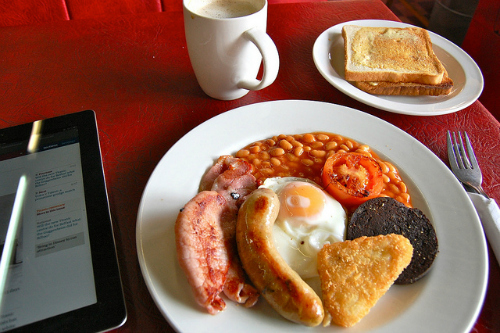With the party season in full swing, most of us are likely to overindulge and spend a day laid up as a sweaty, groaning mess of regret and nausea.
Whether it be the office Christmas party or just a rabble-rousing session with close friends, the demon drink can strike even the hardiest hellraiser down with a heart-breaking hangover.It’s not surprising then that almost every culture in the world has spent time and effort concocting potions, lotions, rituals and rites in the hope of erasing the agony of the morning after the night before.
The humble hangover has even been the subject of intense medical study. Known to doctors as veisalgia, the condition has a long list of symptoms, many theories as to the physiological cause and sadly only one sure remedy: avoid drinking in the first place.
Hangovers are serious business, with the UK economy alone losing an estimated US $3.3 billion thanks to alcohol-induced sick days. It’s pretty amazing that with so much cash on the line, nobody has cured the evil menace that is the hangover. At least, not scientifically. This article runs through folk remedies and recipes that may just do the trick.
Hopefully with these hangover-beating hacks at your disposal, the only thing you need to worry about in the morning is what you got up to in the copy room with that cutie from accounts.
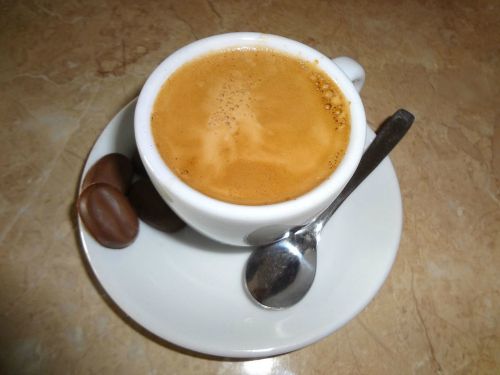
© David Adam Kess
This seems like a fairly obvious way to overcome the exhaustion and malaise of the hangover, especially when feeling too queasy for breakfast. Italians overindulging in la dolce vita will don stylish sunglasses and knock back several shots of super-strong espresso.
There may be some scientific backing to this remedy, over and above just looking cool and sophisticated. Scientists at Thomas Jefferson University in Philadelphia, Pennsylvania experimented with the effects of caffeine on hungover rats.
We’re not sure of the creatures’ favourite tipple, but once they were truly intoxicated, the boffins measured how much of a headache the rodents had. The unfortunate vermin were shown to perk up significantly if given a shot of caffeine and some anti-inflammatory painkillers.
It is theorised that the coffee stimulates blood vessels in the brain and helps combat the reduced circulation caused by alcohol dehydration.
There’s no data from the experiment about the rats’ ability to deal with the regret of drunk-texting their ex.
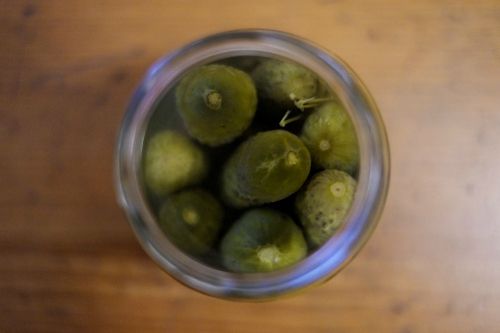
© mingusmutter
The home of vodka should be no stranger to thumping headaches and queasy stomachs. Thankfully one of Russia’s other big passions may provide the perfect cure: pickled gherkins.
After a night on the razz, Russians don’t just slurp up the salty vegetables, but sip the juice that fills the jar. From Warsaw to Vladivostok, this pickle potion is popular with drinkers in all former satellite states. Market places across Eastern Europe and Asia are often filled with bleary-eyed customers lining up at pickle carts to slurp this miracle cure.
One theory suggests that the complex blend of salts, spices, garlic and dill releases naturally curative compounds into the mixture, another that the salty brine restores electrolytes to dehydrated bodies.
We have another theory: that the pickle juice cure doesn’t help with the current affliction, but the taste is so unpleasant that you’ll never want to drink it again and will thus avoid getting drunk in the first place.
The pickle cure is starting to become a fad in western countries, but as part of the revelry rather than a remedy. Trendy London bars now offer the Pickleback, a shot of whisky followed by a shot of spice-infused vinegar.
No continental breakfast could ever contend with a mighty British hangover. It’s probably for the best that this pint-swilling island nation loves has no next-door neighbours, for she loves nothing more than lifting a jar and raising merry hell.
Packed with inns, taverns and famous pubs, Britain is an imperial power in imbibing. So it’s no surprise that the country has a mighty breakfast designed to follow an epic night on the town.
Known as the Full English, variations of geography and recipe may transform this king of breakfasts into an Ulster Fry or a Full Scottish. Wherever it is, the breakfast is always large and greasy.
Packed with sausage, bacon, eggs, baked beans, mushrooms, tomatoes, hash browns, fried bread and a curious blood sausage known as black pudding, the Full English is usually accompanied by a monster mug of tea.
Recent investigation suggests that the meal’s fatty content, thought to soak up alcohol from the stomach, isn’t the mechanism behind this miracle cure. Instead it could be the epic amounts of carbohydrates and sugars replenishing the body’s beleaguered stores.
So, when a croissant just won’t cut it, order up an English.

© Profberger
A fine cognac might be the perfect way to finish off a refined evening of liquid refreshment, but come the morning and a pounding head it may be the key ingredient in a lifesaving cocktail.
Hangovers in Hungary have a curious cure. Perhaps alcohol-frazzled minds came up with this ridiculous recipe, or maybe it’s an ancient legend. Either way, it takes a brave or desperate person to try this cure.
Mixing an exquisite brandy with the droppings of a sparrow is said to be an instant cure for hungover souls. It’s also a great way to pick up intestinal parasites and an untold amount of avian bacteria.
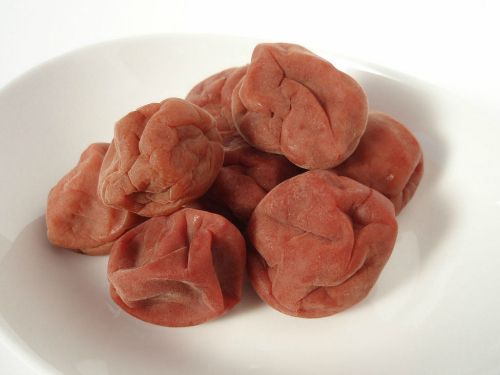
© Batholith
Someone who’s had too much tipple can be described as being somewhat ‘pickled’, soaked in booze and drunk as a skunk. But umeboshi are plums that have been well and truly pickled.
The Japanese delicacy is a favourite folk cure, for everything from fatigue to nausea and poorly digestive systems. Even gifted with the ability to detoxify the blood, umeboshi sounds like the wonderfood we’ve all been waiting for and is a strong contender to end the woe of the morning after.
The only downside is the bitterness of the pickled plums. Firstly, the fruit is more closely related to the apricot, and is pickled for a long time, making them very bitter and very salty.
The flavour is so strong that gaijin (foreigners) trying the snack have left restaurants spitting and coughing. The citric acid content of the fearsome fruit is so high that they have been known to dissolve schoolchildren’s lunchboxes during morning lessons.
It’s perhaps not surprising that the powerful plum was issued to samurai warriors before battles in order to give them an energy boost and make them feel invincible.
This virgin cocktail is blessedly alcohol free, but is packed with other ingredients that might turn stomachs just as easily. Surprisingly, the drink is also free of seafood despite the name, with the base ingredient being raw egg.
This is where sore heads may spin and churning stomachs may gurgle. The egg is poured carefully into a shot so the yolk remains intact. Then Tabasco sauce, Worcestershire sauce and salt and pepper are smothered over the egg.
The resulting concoction is a spicy, rich and somewhat congealed mass said to resemble an oyster. We can only assume that cowboys working the Great Plains, thousands of miles from the sea, had never actually tasted an oyster and took a sly barman’s word for it.
If you do feel the urge to try this restorative tonic, make sure you only order it Stateside; a Canadian dish of the same name is platter of fried bull’s testicles. Bon appetit!
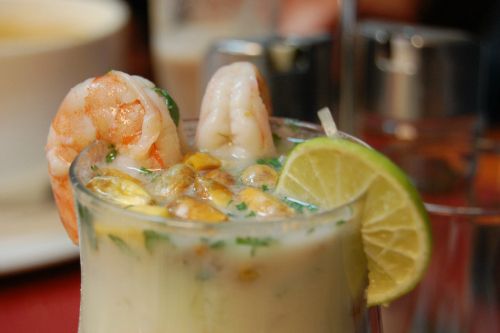
© Carlos Varela
Leche de tigre has magical powers. It is said to cure all ills and even have the ability to levantar muertos (raise the dead). So however bad your hangover may be, tiger’s milk should be able to set you right.
Much like Russia’s proud pickle juice treatment, tiger’s milk has its origin in Peru’s national dish. Ceviche is a dish of raw fish, marinated in a spicy, lime-infused sauce that is rich in herbs and vitamin C.
It’s perfectly acceptable to slurp this sauce after a night on the town, whilst eating a dish of ceviche dripping in the same concoction. The invigorating elixir is packed with healthy ingredients and is also said to be a powerful aphrodisiac.
There’s no clue as to why a fish-based recipe should be named after a tiger, but a variation involving black clams creates a darker brew known as panther’s milk.
So expect to be turned from a snivelling, sweating hung-over zombie into a suave, lusty superman with just a simple sip of this magical milk.
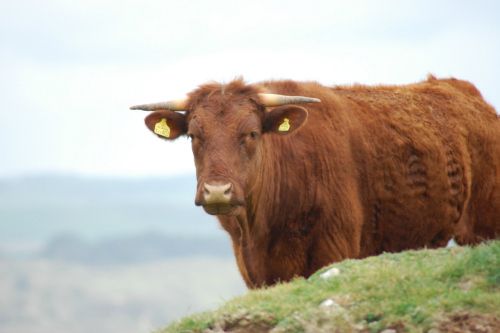
© Paul Hayday
Earlier we looked at the metropolitan Italian cure for overindulgence: sipping a rich espresso whilst looking ultra-cool in designer clothes. If only the Sicilians had adopted this suave solution.
Thankfully the traditional cure is falling out of fashion, and it’s not just the people who are thankful; the island’s cattle are greatly relieved. Until recently it wasn’t uncommon to see hung-over residents chewing on what looked like a piece of beef jerky on their way to work.
Closer inspection will reveal that this dried meat is actually strips of bull penis. The unfortunate animal’s naughty bits are lopped off, dried, cured and smoked before being hungrily gnawed by suffering Sicilians.
Allegedly the chewy texture and rich meaty flavour are revitalising, with protein and high levels of testosterone turning whimpering winos into muscular, masculine Mediterranean Adonises.
The reputation of this junk jerky is so strong that Chinese athletes competing in the 2008 Olympics insisted on supplies being specially flown in for the competition.
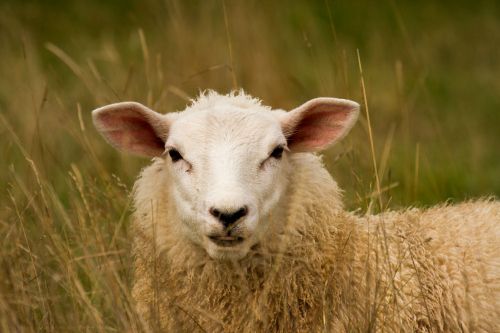
© Michael Palmer
Party animals around the world regularly reach for the Bloody Mary for a curative cocktail, but Mongolian drinkers include the animal in their soothing brew. The Mongolian Mary is a tall glass of tomato juice with two unusual ingredients: a pair of sheep’s eyeballs.
The nomadic history of the Mongolian people has bred a culture of ‘nose to tail’ eating, where no edible part of an animal should be wasted. So it seems entirely fitting that a hangover cure should contain such an unexpected ingredient.
The Mongolian Mary is a relatively recent invention, but batan, a restorative porridge loaded with sheep’s eyes and other parts, has long been the solution to a sore head.
Sadly, Mongolians reach for hangover cures more frequently than much of the rest of the world; World Health Organization data reports that 22% of men and 5% of women are alcohol dependent.
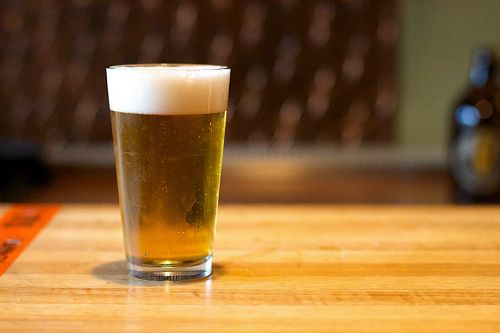
© Alan Levine
The literal translation of this cure is ‘recovery beer’. The idea of fighting fire with fire is not unique to the Danes. Many cultures suggest getting back on your boozy horse as a recovery method, but Denmark has a great phrase to sum it up.
This method is known to the English-speaking world as ‘hair of the dog that bit you’, supposedly relating to a potion that staved off rabies following canine attacks. Rather than conjuring images of foaming at the mouth whilst attempting to shave an angry Alsatian, reparationsbajer sounds like a medically sound remedy.
Breakfast beers have been popular with the hangover sufferers of history, with Latin texts recording the practice. Eastern European languages have ancient phrases about hammering in a nail with another nail and American bars have long served reviving cocktails. The barman’s bible, Savoy Cocktail Handbook, contains recipes for ‘Corpse Reviver’, a powerful gin martini with Cointreau and toe-curling absinthe.
There are many theories as to how the method works, some involving complex metabolic chemistry and calorie balancing. It could simply be that the best way to stop moping around feeling sorry for yourself is to crack open a brew and get the party started again. Cheers!
Article by Andy Scofield, International Features Writer

